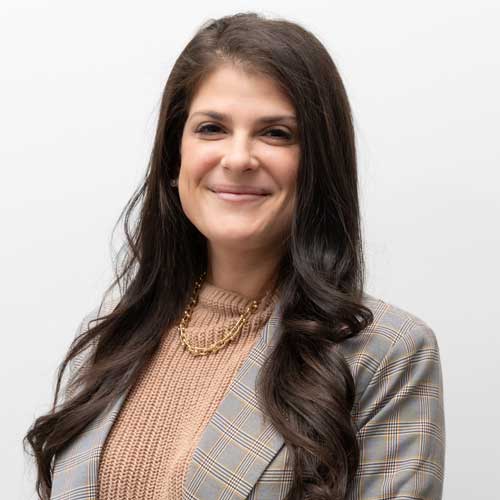Xanax, a benzodiazepine commonly prescribed for anxiety and panic disorders, can be highly addictive, even when taken as directed. Dependence can develop quickly, and once it does, quitting without professional support often leads to severe withdrawal symptoms. If you or someone you care about is battling Xanax addiction, treatment options in Massachusetts—especially at Berkshire Mountain Health—offer a safe, structured path to long-term healing.
At Berkshire Mountain Health, we provide a medically supervised detox and therapy environment tailored specifically for those struggling with benzodiazepine dependence. Our expert team understands the complexities of this addiction and guides individuals through every phase of recovery, starting with the most critical: safe withdrawal.
Why Xanax Addiction Requires Professional Treatment
Xanax works by depressing the central nervous system, creating a calming effect that can quickly lead to tolerance. As users develop dependence, they need higher doses to feel the same relief. Over time, their bodies become reliant on the drug to function.
Stopping Xanax use abruptly is dangerous. Withdrawal symptoms can include seizures, extreme anxiety, insomnia, tremors, and hallucinations, some of which can be life-threatening. This makes medically supervised detox essential for safety and comfort.
Common symptoms of Xanax withdrawal include:
- Panic attacks
- Muscle pain or stiffness
- Difficulty sleeping
- Heart palpitations
- Severe agitation
- Risk of seizures
These symptoms can peak within 1–4 days of stopping use and linger for several weeks. Trying to detox at home often leads to relapse, not because of a lack of willpower, but due to the overwhelming physical and mental toll of withdrawal.
Medically Supervised Xanax Detox at Berkshire Mountain Health
Detox is the first and most urgent step in Xanax addiction treatment. At Berkshire Mountain Health, our detox program is tailored to meet the specific needs of benzodiazepine users. Our clinical staff monitors each patient 24/7, ensuring safety and addressing symptoms with appropriate interventions.
We use tapering protocols—gradually lowering the dose of Xanax or replacing it with a longer-acting benzodiazepine—to reduce withdrawal risks. When appropriate, medication-assisted treatment (MAT) may be integrated to manage symptoms and reduce discomfort.
Our Massachusetts Xanax detox program includes:
- Constant medical monitoring
- Individually tailored tapering schedules
- Nutritional and hydration support
- Access to licensed physicians and nursing staff
- Therapeutic support during detox to manage anxiety and fear
Therapy and Emotional Support for Xanax Recovery
Detox alone is not enough to address Xanax addiction. Once physical symptoms are stabilized, the deeper work of recovery begins through therapy. Berkshire Mountain Health offers both individual and group therapy designed to uncover the emotional roots of addiction and develop healthier coping strategies.
We also assess for co-occurring disorders like generalized anxiety disorder or PTSD, which often coexist with benzodiazepine addiction. Treating both conditions simultaneously known as dual diagnosis treatment, improves recovery outcomes dramatically.
Therapeutic support may include:
- Cognitive Behavioral Therapy (CBT)
- Trauma-informed therapy
- Stress management techniques
- Mindfulness and relaxation training
- Peer-based support in group settings
Building Long-Term Recovery Through Aftercare
A crucial part of Xanax addiction treatment is what happens after detox and residential care. At Berkshire Mountain Health, we help each patient create a comprehensive aftercare plan that supports them after they leave our facility.
Relapse risk is especially high in the weeks and months after withdrawal. That’s why we emphasize aftercare as an integral part of healing. Plans may include continued outpatient therapy, connection to sober living homes, or referrals to community support groups.
Aftercare planning includes:
- Individualized outpatient treatment referrals
- Connection to peer recovery communities (e.g., SMART Recovery, NA)
- Continued therapy or counseling for anxiety disorders
- Sober living placement assistance
- Ongoing check-ins to support accountability
Why Choose Berkshire Mountain Health for Xanax Addiction Treatment in Massachusetts?
Our location in the scenic Berkshires offers more than just a peaceful recovery setting—it provides access to a highly experienced team that specializes in substance use and co-occurring disorders. From the moment you enter our program, you’re supported by compassionate professionals who understand the fear, shame, and uncertainty that often surround addiction.
We treat each person with dignity and respect, ensuring their treatment plan addresses not only the addiction, but the underlying causes that led to it. Our goal is not just to help you get clean, but to give you the tools and support system you need to stay that way.
Start Your Recovery Today
Xanax addiction is difficult but not impossible to overcome. With professional help, healing is within reach. Berkshire Mountain Health offers expert, compassionate Xanax addiction treatment in Massachusetts designed to support you at every step, from withdrawal through long-term recovery.
If you’re ready to take that first step or want to learn more about how we can help, contact us today. Your journey toward peace, health, and freedom begins here.
Sources:
[1] https://nida.nih.gov/publications/drugfacts/understanding-drug-use-addiction
[2] https://library.samhsa.gov/product/tip-45-detoxification-and-substance-abuse-treatment/sma15-4131

Alexis earned both a B.S. in Psychology and a B.S. in Family and Child Sciences from Florida State University and an M.A. in Marriage and Family Therapy from the University of San Diego. She holds licenses in Marriage and Family Therapy in Florida, Connecticut, and Massachusetts and is also a member of the American Association for Marriage and Family Therapy (AAMFT).
Alexis works with families, couples, children, and groups and also has a sub-specialty in addiction and recovery. She utilizes an integrated, systemic approach to counseling; empowering people to define what is not working for them in their lives and to discover the possibilities for making life work. In doing this, clients are guided towards identifying their strengths, accessing their resources, tapping into their potential for success, and taking action toward achieving their desired goals.
Alexis also has extensive experience in the administration of behavioral health organizations. She has developed, built, and supervised several facilities encompassing all levels of care while leading them through state licensing and The Joint Commission accreditation process.










